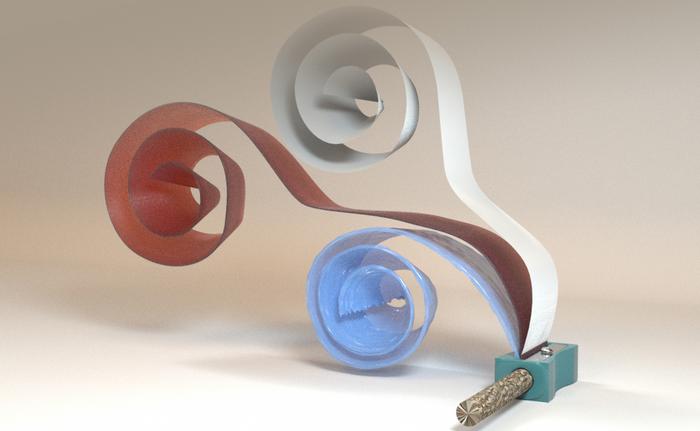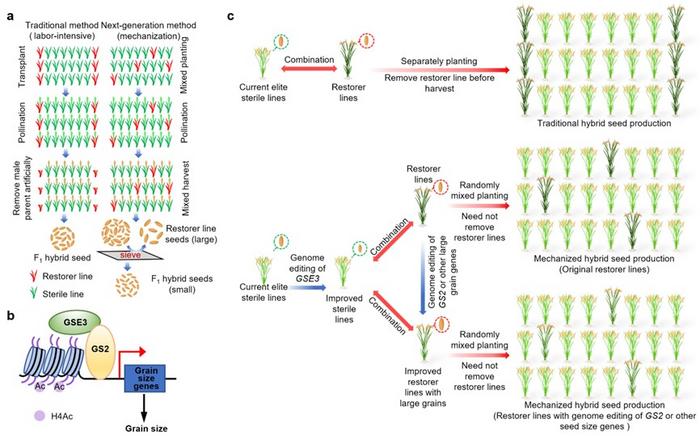Replacing diesel school buses with electric school buses may yield up to $247,600 in climate and health benefits per individual bus, according to a new study by researchers at Harvard T.H. Chan School of Public Health. The researchers found that these benefits—including fewer greenhouse gas emissions and reduced rates of adult mortality and childhood asthma—and their associated savings are strongest in large cities and among fleets of old (2005 and before) buses.

The study will be published in The Proceedings of the National Academy of Sciences on May 20, 2024.
While the health and climate benefits of switching from diesel vehicles to electric ones are well established, this is the first study to specifically quantify how electric school buses can improve human and planetary health.
Sign up for the Daily Dose Newsletter and get every morning’s best science news from around the web delivered straight to your inbox? It’s easy like Sunday morning.
“Research on air pollution and climate change should strive to quantify health benefits,” said senior author Kari Nadeau, John Rock Professor of Climate and Population Studies and chair of the Department of Environmental Health. “Our findings can inform policymakers that greenhouse gas emissions and air pollution are reduced by implementing solutions like electric vehicle use. Our data offer strong evidence that accelerating the ongoing transition to electric school buses will benefit individual, public, and planetary health.”
There are about half a million school buses in use in the U.S. and a substantial portion are older, highly polluting diesel buses. Switching to electric buses is a difficult decision for local, state, and federal officials as they are expensive and the health benefits are not well known.
To quantify how diesel and electric school buses impact the climate, the researchers compared the amounts of carbon dioxide emitted from diesel school bus tailpipes and from electric school buses’ electricity generation and battery production. To assess the buses’ health impacts, the researchers compared how their respective emissions contribute to fine particulate air pollution (PM2.5), which is linked to adult mortality and the onset of childhood asthma.
The study found that replacing an average diesel school bus in the U.S. fleet in 2017 with an electric one resulted in $84,200 in total benefits per individual bus. Each electric school bus emitted 181 fewer metric tons of carbon dioxide than its diesel counterpart, amounting to $40,400 worth of climate benefits. Meanwhile, each electric school bus was associated with $43,800 in health savings, from less air pollution and reduced rates of mortality and childhood asthma.
The study also found that electric school buses’ health benefits vary depending on location and the age of the diesel bus being replaced. Large metropolitan areas—defined as those with a population of more than one million—derive the most significant health benefits from electrifying fleets of school buses, given the larger number of people whose air quality is improved. The researchers calculated that, in a large city, replacing a 2005 diesel school bus with an electric bus would achieve $207,200 in health benefits per bus.
“In a dense urban setting where old diesel buses still comprise most school bus fleets, the savings incurred from electrifying these buses outweigh the costs of replacement,” Nadeau said. “Not to mention how the tangible benefits of electric school buses can improve lives—especially for racial minorities and those living in low-income communities who are disproportionately impacted by the everyday health risks of air pollution.”
Nadeau and her co-authors noted that the study did not tackle one important question: how electric school buses impact children’s exposure to in-cabin air pollution while riding the bus. Additional research into this topic could further inform policy decisions.
If you enjoy the content we create and would like to support us, please consider becoming a patron on Patreon! By joining our community, you’ll gain access to exclusive perks such as early access to our latest content, behind-the-scenes updates, and the ability to submit questions and suggest topics for us to cover. Your support will enable us to continue creating high-quality content and reach a wider audience.
Join us on Patreon today and let’s work together to create more amazing content! https://www.patreon.com/ScientificInquirer


.jpg)


Leave a Reply